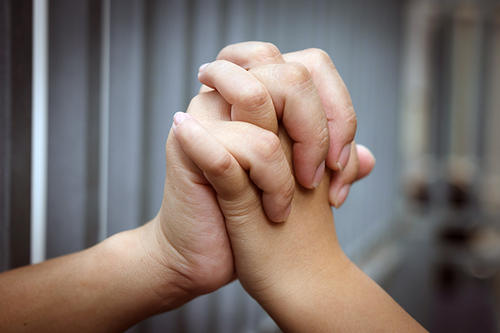
You’ve seen news stories about America’s criminal justice system. When was the last time you saw a story about the children of the incarcerated?
That question drives student researchers at a unique University of Minnesota lab.
Headed by Rebecca Shlafer, a child psychologist in the U of M Medical School, and featuring the research of College of Liberal Arts undergraduates, the lab is looking at what happens to those kids on the other side of the bars.
“In Minnesota alone, 76 percent of all incarcerated women are mothers with minor children, and 66 percent of all incarcerated men are fathers with minor children,” says Shlafer. Parental incarceration increases a child’s risk of mental health problems, substance abuse, and delinquency. This creates “intergenerational cycles of poverty, limited education, and limited access to opportunity,” she says.
Shlafer’s lab provides a powerful learning experience for the students and a steady stream of data. She says the size of the problem, and the fact that little work has been done on it, means the challenge is enormous.
Each fall, Shlafer recruits six to eight undergraduates to work in her lab. Students have researched everything from drawings by children of incarcerated parents to conversations about incarceration between children and their caretakers.
Already they’ve affected policy—helping establish state laws to protect incarcerated women from mistreatment and ensure access to parenting programs.
“I tell my students, ‘Pick any part of this problem and we can make a difference,’” Shlafer says.
- Categories:
- Law and Policy





